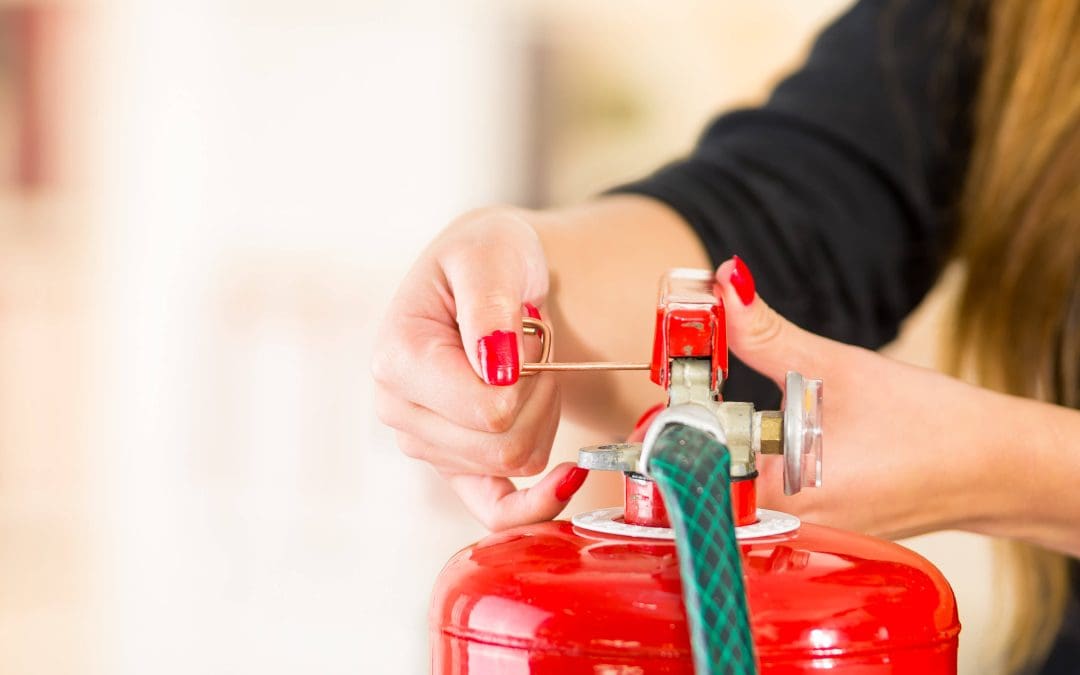Keeping your home safe goes beyond locking the doors at night. True home safety means protecting your family from hazards like fire, carbon monoxide, falls, and even intruders. While this might sound overwhelming, taking small, practical steps can make a huge difference. Let’s walk through some of the home safety essentials every homeowner should focus on to create a safer living space.
Home Safety Essentials for Fire Safety: Prevention and Preparedness
Fires can start in an instant, and the best way to protect your home is to prevent them. Make sure you have smoke detectors installed in every bedroom, hallway, and common area. Test them monthly and replace batteries at least once a year. Having a fire extinguisher in key locations like the kitchen and garage is a must, and everyone in the house should know how to use it.
Another major fire risk comes from electrical issues. Overloaded outlets, frayed cords, and outdated wiring can all pose a threat. If you have frequent breaker trips or flickering lights, it’s worth getting an electrician to take a look. Lastly, always have an escape plan. Make sure every family member knows at least two ways out of the house and where to meet outside in case of a fire.
Carbon Monoxide and Gas Leak Detection
Carbon monoxide (CO) is called the silent killer for a reason—you can’t see, smell, or taste it. That’s why a CO detector is just as important as a smoke detector. Place them near sleeping areas and on each level of your home. If your home has gas appliances, schedule regular inspections to make sure there are no leaks. If you ever smell gas, leave immediately and call your utility company.
Preventing Falls and Injuries
Falls are one of the leading causes of injuries at home, especially for young children and older adults. Start by securing loose rugs and keeping walkways clear of clutter. Handrails on stairs should be sturdy, and if you have elderly family members, consider installing grab bars in bathrooms. Good lighting is also crucial—hallways, staircases, and entryways should be well-lit to prevent tripping hazards.
For families with young kids, safety gates at the top and bottom of stairs can prevent serious accidents. Window locks and guards can also keep curious little ones from dangerous falls.
Securing Your Home Against Intruders
A secure home isn’t just about having a fancy alarm system. Simple habits can go a long way in keeping intruders out. Always lock doors and windows, even when you’re home. If you have sliding glass doors, use a security bar or dowel rod in the track to prevent forced entry. Motion-sensor lights around entry points can deter would-be burglars, and video doorbells or security cameras can provide an extra layer of protection.
If you’re going on vacation, make sure your home doesn’t look empty. Ask a neighbor to collect your mail or set timers for lights to go on and off. And don’t forget about the garage—keep it locked and secure, especially if it has an entrance into your home.
Home Safety Essentials for Emergency Preparedness: Being Ready for Anything
No one likes to think about emergencies, but being prepared can make all the difference. Every home should have an emergency kit with essentials like bottled water, non-perishable food, flashlights, batteries, and a first-aid kit. It’s also smart to keep a battery-powered radio in case you lose power.
Make sure everyone in the family knows basic emergency numbers, including 911, poison control, and a trusted neighbor’s contact information. If you live in an area prone to natural disasters like hurricanes, tornadoes, or earthquakes, have a specific plan in place so everyone knows what to do when disaster strikes.
Home safety requires some planning and action. These simple steps can give you peace of mind and ensure that your home remains safe and secure for you and your loved ones.
Frequently Asked Questions on Home Safety Essentials
How often should I test my smoke and carbon monoxide detectors?
Test them at least once a month and replace the batteries once a year. If a detector is more than ten years old, replace it entirely.
What should I do if my carbon monoxide alarm goes off?
Immediately move everyone outside and call emergency services. Do not re-enter the house until it’s deemed safe.
How can I make my home safer for older family members?
Install grab bars in bathrooms, improve lighting, secure rugs, and ensure sturdy stair railings. For added security, consider a medical alert system.
What’s the best way to secure my doors and windows?
Use deadbolt locks on doors, reinforce sliding doors with a security bar, and install window locks. Smart locks and video doorbells can provide additional protection.
What should be in my emergency kit?
Water, non-perishable food, flashlights, extra batteries, a first-aid kit, important documents in a waterproof bag, and a battery-powered radio. If you have pets, include their food and medication as well.
Home Inspection Protection provides professional inspection services in Naples, Florida, and the surrounding area. Contact us to request an appointment.

